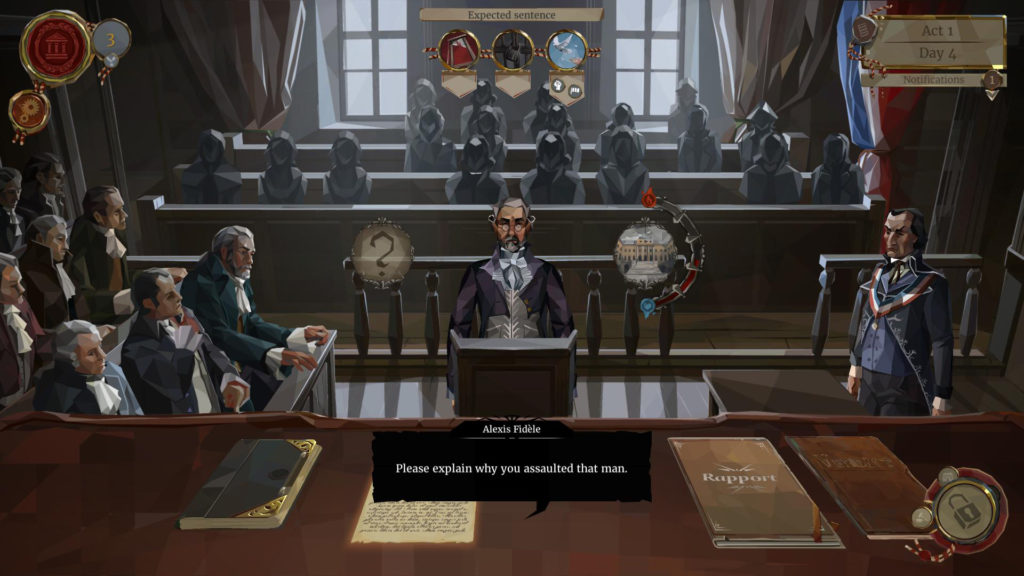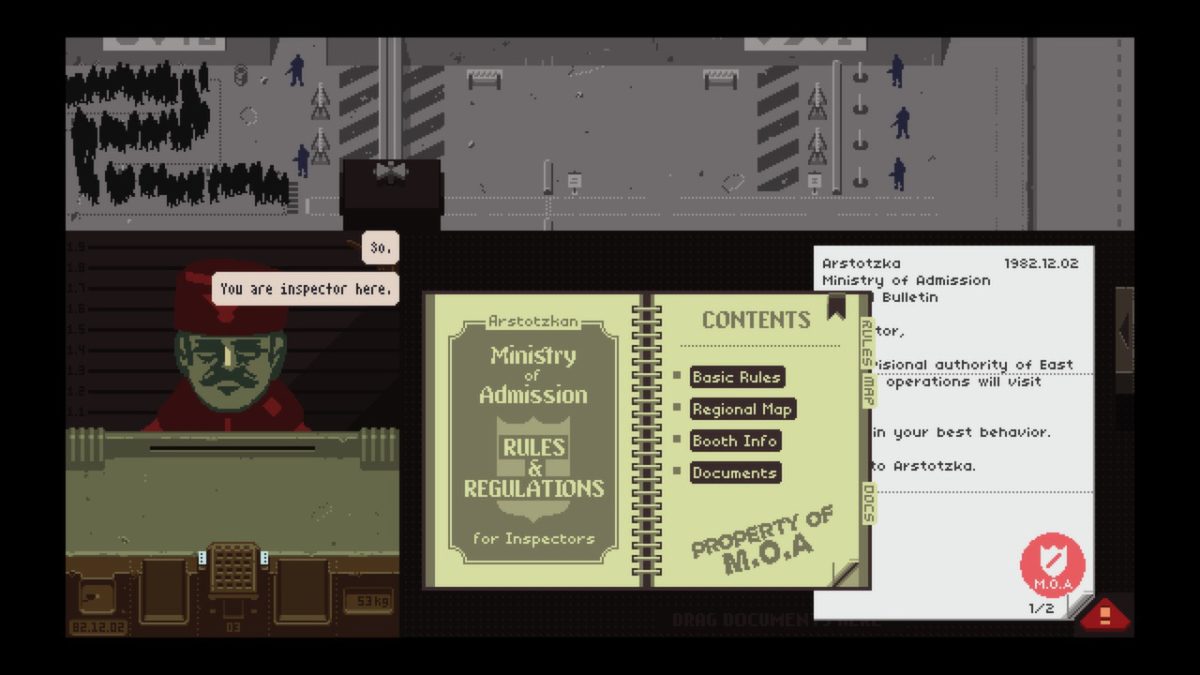Games have often lacked nuance, dealing in heavy-handed constructions of black and white morality, heroes and villains. Even when they depict (or try to portray) anti-heroes and good-bad people, it’s rare to find a game that does so unproblematically. The often-triumphalist, teleological narratives and gameplay orientation of many games means that nuanced engagement with ethical issues, especially when it comes to the kind of histories we tell in and through games, can be tricky to accomplish in a way that’s satisfactory to everyone (if such a thing could or should be possible, anyway).
The following curatorial post includes a selection of games that have been dealing with issues around “ethics” in history and games, and links to work written about them.
Stay tuned for more Ethics discussion posts from our guest contributors on the blog in the next few weeks, and sign up for the upcoming event (1st September, 4pm BST) via Eventbrite here.
Background Reading
- For background reading on game design, play and “ethics”, and the way games can engage players with certain moral questions or dilemmas: Miguel Sicart, Beyond Choices: The Design of Ethical Gameplay (The MIT Press, 2013).
- On the way games represent and act players to engage with violence, and may prompt certain kinds of responses from players: Tilo Hartmann and Peter Vorderer, “It’s Okay to Shoot a Character: Moral Disengagement in Violent Video Games”, Journal of Communication, 60.1 (2010). (See also this Game Studies article)
Bullet Points Monthly have long been curating an excellent selection of thoughtful writing on historical video games (and of course, video games more broadly). Some select, great pieces and coverage that fits broadly within our current Ethics theme includes:
- Reid McCarter’s article on Call of Duty: Black Ops Cold War’s interpretation of the Cold War’s “good guys” and “bad guys”, and Yussef Cole’s piece on “Vietnam Syndrome”, and the game’s western interpretation and representation of the conflict.
- The dubious moralising of Bioshock: Infinite, and how it undercuts the game’s attempts at critique of foundational American ideologies and values.
- Jonathan Reid’s article on Vampyr, and the game’s (perhaps old fashioned) implementation of moral choices and a morality system.
Play the Past has also been a great resource for writing on History and Games, and work that intersects with concerns about “ethics”:
- Peter Christiansen, ‘Medieval Ethics: Designing Historical Systems’, Play the Past, 15 April 2015.
- Peter Christiansen, ‘Capricious Fate: Videogames as Tools for Moral Instruction’, Play the Past, 13 November 2013.
- Amanda Visconti, ‘This is Not a Game (But Play Nice!): The Ethics of Counterfactual ARGs in the History Classroom’, Play the Past, 4 October 2011.
Ethics and the (Game) History of World War Two
World War Two is very often the focal point for discussions about what it is ethical (or not) to represent in games, owing in part, perhaps, to the sheer number of games that use aspects of the war as their subject matter. But this is also evidently because of the range of sensitive topics intrinsic to the memory of the War, which many games have historically (and until quite recently) shied away from.
- The ethics of representing complex and taboo topics, such as Nazi Germany and the Holocaust, and developers’ longstanding reluctance to engage with sensitive topics, is something Adam Chapman and Jonas Linderoth explored in their 2015 book chapter on “The Limits of Play” (see Adam’s discussion of their argument in his recent post that kicked-off our Ethics theme).
- The application of “agonism” as a concept has been explored in the design of “dark heritage” serious games, as another way of dealing with complex and unsettling historical topics, and engaging visitors to museums with them: Daniela De Angeli, Daniel Finnegan, Lee Scott, and Eamonn O’Neill, “Unsettling play: perceptions of agonistic games”, Journal on Computing and Cultural Heritage, 14.2 (2021).
Particular games that are taking the ethical issues of exploring resistance and persecution under Nazism include:
- Attentat 1942 (Charles Games, 2017), designed with historians, and a fascinating example of the potential of games to engage with oral histories about difficult topics. You can read more about their forthcoming follow up, Svoboda 1945, on Steam.
- Through the Darkest of Times (Paintbucket Games, 2020), a strategy game built explicitly around resistance. See here for Jeremiah McCall’s 2-part review of the game for Play the Past: Part 1, and Part 2.
- The Wolfenstein series (particularly the franchise’s reboot post-2014), and its explicit engagement with an alternate history imagining that Nazi Germany won the war, has been the topic of much debate. (See the following Bullet Points articles on the way Wolfenstein: Youngblood and Wolfenstein II: The New Colossus grapple with and distort the memory of the Second World War, and evils of Nazi Germany and post-war American “righteousness”)
Ethical Fallout?
The Fallout franchise is also a frequent touchstone for discussion of ethics/morals and historical game design. The games are known (and have been studied) for the ways they encourage and require players to make ethical decisions, and to see the consequences of those decisions play out in their experience of the game world and narrative.
See for example:
- Marcus Schultz, “Moral Decision Making in Fallout”, Game Studies, 9.2 (2009).
- Matthias Kemmer, “The Politics of Post-Apocalypse: Interactivity, Narrative Framing and Ethics in Fallout 3”, in Gerold Sedlmayr and Nicole Waller, eds., Politics in Fantasy Media: Essays on Ideology and Gender in Fiction, Film, Television and Games (McFarland, 2014), 97-117.
Some other examples of relevant games:

Papers, Please (Lucas Pope, 2013)
- Antraing Sarian, “Ethical Self-Reflection in Papers, Please”, Cultural Science Journal, 11.1 (2019), pp. 41–53.
We. The Revolution (Polyslash, 2019)
- Kevin Recher, “We. The Revolution, a Review. Vive la Révolution or Death and All His Friends”, gamevironments 11 (2019), pp. 134-141.
This War of Mine (11 Bit Studios, 2014)
- Gilles Roy, “This War of Mine: Human Survival and the Ethics of Care”, Play the Past, 27 July 2016.
Spec Ops: The Line (Yager Development, 2012)
Kristine Jørgensen, “The Positive Discomfort of Spec Ops: The Line”, Game Studies, 16.2 (2016).
Brendan Keogh, Killing is Harmless: A Critical Reading of Spec Ops: The Line (Stolen Projects, 2012)
Soraya Murray, ‘Race, Gender and Genre in Spec Ops: The Line’, Film Quarterly, 70.2 (2016), pp. 38-48.
Ethics, Games, and Labour
Finally, on a different note but still intrinsically interwoven with concerns about ethics, representation and game content, it would be remiss of us not to draw attention to important questions and issues around ethical labour practices, video game studio working environments, conditions and “crunch”, which are ever-frequently being reported on. What does or could the ethical production of historical games look like? These issues are pervasive, but for some recent examples see:
- In the last few days, Activision Blizzard Inc. have been sued by the California Department of Fair Housing amidst allegations of sexual discrimination, pervasive harassment and retaliation at the company (read more on the developing story here).
- Similar claims were made about the working culture at Ubisoft in 2020 (see also this History Respawned episode for discussion)
- Ethan Gach writes on recent revelations at Ubisoft Singapore, co-developers of Assassin’s Creed Valhalla.
- And related to the production of Red Dead Redemption 2, see Jason Schreier, ‘Inside Rockstar Games’ Culture of Crunch’, Kotaku, 23 October 2018.

0 replies on “Ethics, History, Games: A Reading (and Playing) List”
[…] easy to get sidetracked as the field continues to expand. We did a reading (and playing list) for Ethics, History, Games last July and with our current theme being Education, this is an opportunity for us to point […]